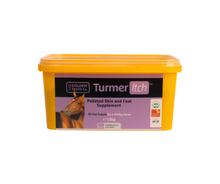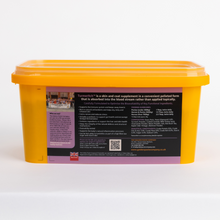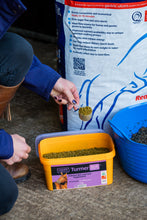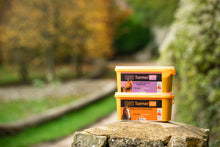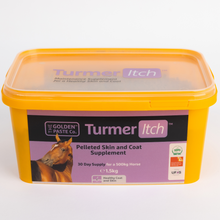Sweet Itch - What is it?

Have you heard of sweet itch?
It is an insect Bite Hypersensitivity, otherwise known as Sweet Itch, in the UK ("summer mange", "summer eczema" or "Queensland itch", across the world), is a chronic, recurrent, seasonal dermatitis of horses.
What causes sweet itch in horses?
Sweet itch is caused by an allergic reaction to the protein in the saliva of biting insects. This causes the immune system to attack its own cells and leads to an extreme reaction. Horses predominantly show signs of sweet itch at the base of the mane and tail, and on the face. The withers, back, belly and rump can also be affected. Clinical signs range from mild to severe itchiness, often accompanied by hair loss and broken skin from constant scratching which can then lead to an infection. Over time the skin can thicken, folds develop, and the hair becomes sparse and coarse with flaky skin. Several behavioural changes can also occur including excessive rolling and mutual grooming, head shaking and an agitated/restless demeanour.
Is there a cure?
This hereditary condition presents typically in a horse's second or third summer and subsequently worsens with age. It can affect almost any horse or pony – regardless of type, breed and age – but research does show it is particularly prevalent in some native breeds. Sweet itch is the most common allergic skin disease in the UK and affects around five per cent of our horse population. There is no cure and treatment is aimed at preventing or reducing exposure of the horse to the biting midge and reducing the hypersensitivity reaction.
How can you manage sweet itch?
Along with all the essential management tools you can use to help manage your horse or pony’s symptoms such as a fly rug, stabling during times of high midge activity (dawn and dusk) and using various creams and sprays that are available, have you thought about helping soothe from the inside out?
Taking an internal approach to managing sweet itch can be an effective way to condition skin health and ease irritation. Herbs and botanicals are widely recognised for their ability to support coat condition and overall skin comfort.
Selecting supplements with high antioxidant content may help maintain healthy skin, particularly for horses prone to dryness, itching, and irritation. Antioxidants contribute to skin resilience by assisting the body's natural response to environmental stressors. Additionally, essential oils containing terpenoids can help reinforce the skin’s natural barrier. As the body reacts to external irritants, sebum production at the hair follicle base creates a protective layer, aiding in skin integrity and defense.
Prepare for sweet itch season
Support skin condition, by supporting digestive health & gut integrity, which helps optimise the microbiome. The microbiome is an integral factor in supporting health and wellbeing which, in turn, optimises skin structure and function.
Skin function includes sebum secretion that, including essential oils, coats the outer skin and hair providing a physical barrier to ectoparasites, including insects and so allows sensitive horses to enter the fly season pre-prepared.







